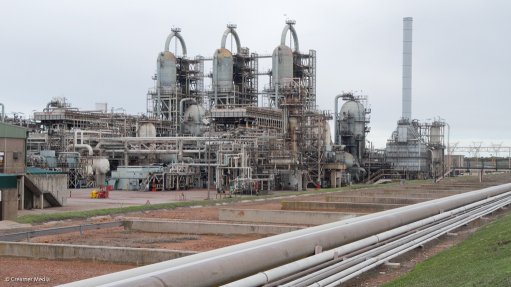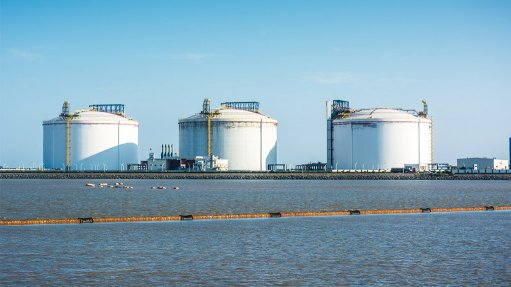Alleviating Energy Storage Concerns
This article has been supplied as a media statement and is not written by Creamer Media. It may be available only for a limited time on this website.
The International Energy Agency (IEA) predicts that by 2035, developing nations will constitute 80% of total global energy production and consumption alike. A greater portion of this new generation will be derived from renewable sources in response to adhering to international policies for cleaner energy. While the costs of renewable generation are declining, concern for energy storage that is essential for the effective utilisation of these renewable sources is on the rise. However, with the advent of a revolutionary concept known as Battery Energy Storage System (BESS), these concerns have been somewhat appeased. The Battery Energy Storage System (BESS) is a system that stores energy using a battery technology so that it can be utilised in the future.
Spurred by the adoption of cleaner energy, declining prices and regulatory subsidies; solar photovoltaics, battery energy storage systems and mini-grids are being increasingly utilised across the electric system. These developments necessitate that utilities adapt their conventional centralised systems into more flexible, integrated and distributed power networks. This movement is evolving from preliminary phases to long-term investments that support the evolution of new business models.
While still expensive, the cost of energy storage is rapidly declining. A report released by the International Renewable Energy Agency (IRENA) stated that the cost of battery storage for stationary applications could fall by up to 66% by 2030. This rapid decline has made the economics of energy storage more appealing to investors, grid operators, utilities and end-users alike. The developing technology has evidently demonstrated that economies of scale are now possible.
The deployment of renewable energy is not only driven by cost efficiencies and environmental awareness, but when coupled with Battery Storage, a new dimension emerges where utilities are able to compete on a level playing field with conventional electricity power plants. Furthermore, energy storage remains a flexible, scalable and efficient solution. Energy storage thwarts the need for power utilities to unearth and replace wires or spend money and time on constructing new plants. As an alternative, they can build a network of battery storage within 6 months.
Energy storage technologies are viewed as a potential game-changer for widespread adoption of renewable energy generation throughout Africa. They facilitate the management of renewable power intermittency, demand response services and the dispatchability of stable, clean and sustainable power into the local or national grid system.
African power generation has traditionally been centralised from costly (often antiquated), poorly managed and maintained, inefficient fossil fuelbased plants on unreliable grid infrastructure. Renewable energy and storage technologies offer low cost utility scale and distributed generation opportunities to African countries to break their dependence on such expensive plants. Policy-makers and state utilities in many countries face a challenging journey of market reform and infrastructure improvement in order to make this shift. This is needed before they will be able (and willing) to support widespread cheap and efficient generation capacity from distributed renewable energy with storage plants running alongside larger centralised plants, each selling power at cost-reflective tariffs and across robust and reliable grid infrastructure.
The reality is that energy storage is going to unlock huge opportunities for more renewable energy investment in Africa at both a utility and distributed scale that will totally disrupt the traditional African power sector model. Governments and state utilities will need to adapt quickly to embrace the evolution and to avoid more and more potential customers going off-grid in the interim. *
Energy storage projects are now under development in various parts of the world thanks to the reduction of the technology’s costs and its necessity to manage the electricity networks and facilitate the renewable energy growth. But does this mean the time to develop energy storage in Africa has arrived too? The Africa Energy Indaba will be discussing the role and impact of energy storage in Africa through a focused dialogue, unpacking and exploring the opportunity for Africa.
Comments
Press Office
Announcements
What's On
Subscribe to improve your user experience...
Option 1 (equivalent of R125 a month):
Receive a weekly copy of Creamer Media's Engineering News & Mining Weekly magazine
(print copy for those in South Africa and e-magazine for those outside of South Africa)
Receive daily email newsletters
Access to full search results
Access archive of magazine back copies
Access to Projects in Progress
Access to ONE Research Report of your choice in PDF format
Option 2 (equivalent of R375 a month):
All benefits from Option 1
PLUS
Access to Creamer Media's Research Channel Africa for ALL Research Reports, in PDF format, on various industrial and mining sectors
including Electricity; Water; Energy Transition; Hydrogen; Roads, Rail and Ports; Coal; Gold; Platinum; Battery Metals; etc.
Already a subscriber?
Forgotten your password?
Receive weekly copy of Creamer Media's Engineering News & Mining Weekly magazine (print copy for those in South Africa and e-magazine for those outside of South Africa)
➕
Recieve daily email newsletters
➕
Access to full search results
➕
Access archive of magazine back copies
➕
Access to Projects in Progress
➕
Access to ONE Research Report of your choice in PDF format
RESEARCH CHANNEL AFRICA
R4500 (equivalent of R375 a month)
SUBSCRIBEAll benefits from Option 1
➕
Access to Creamer Media's Research Channel Africa for ALL Research Reports on various industrial and mining sectors, in PDF format, including on:
Electricity
➕
Water
➕
Energy Transition
➕
Hydrogen
➕
Roads, Rail and Ports
➕
Coal
➕
Gold
➕
Platinum
➕
Battery Metals
➕
etc.
Receive all benefits from Option 1 or Option 2 delivered to numerous people at your company
➕
Multiple User names and Passwords for simultaneous log-ins
➕
Intranet integration access to all in your organisation


















